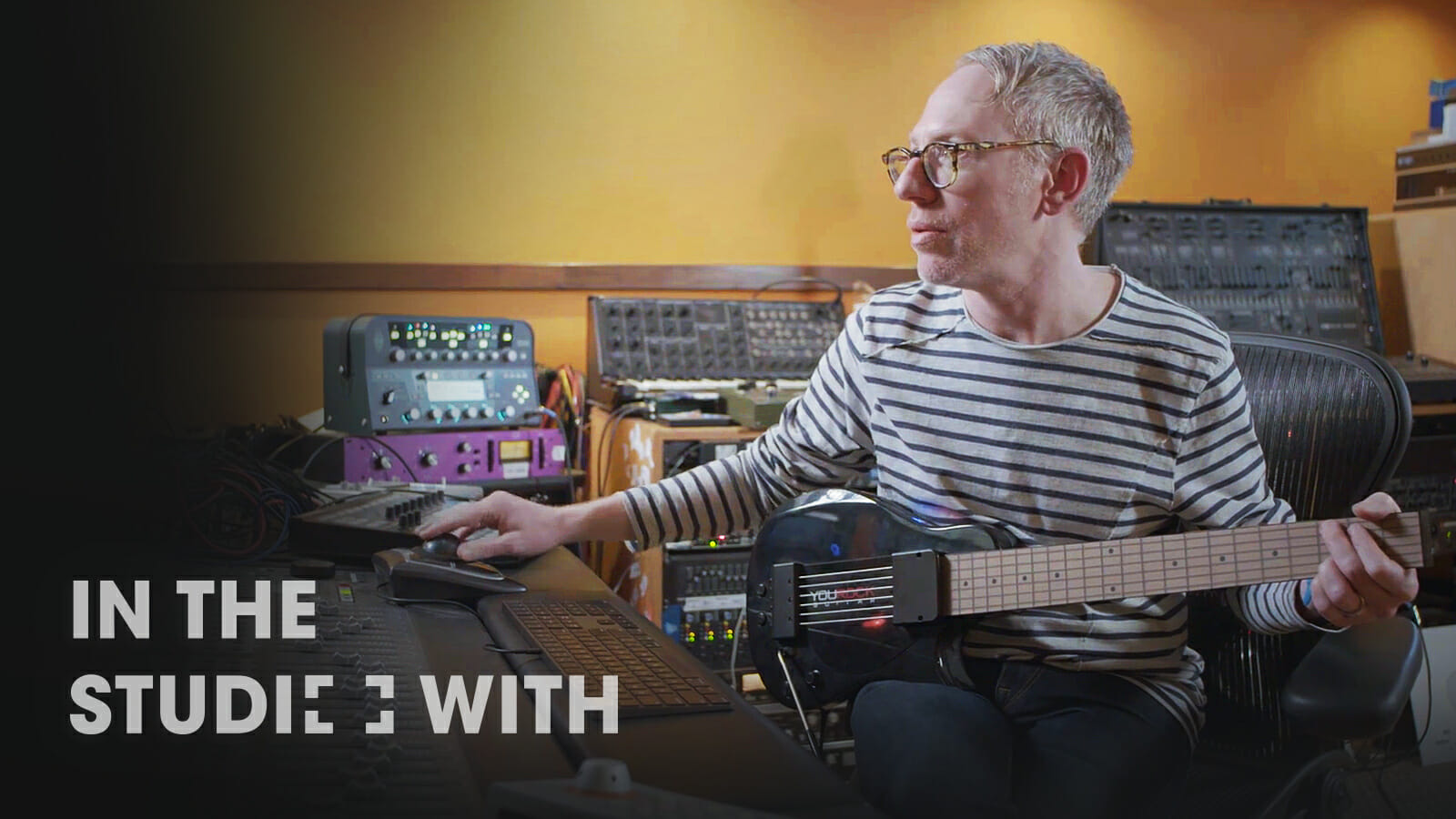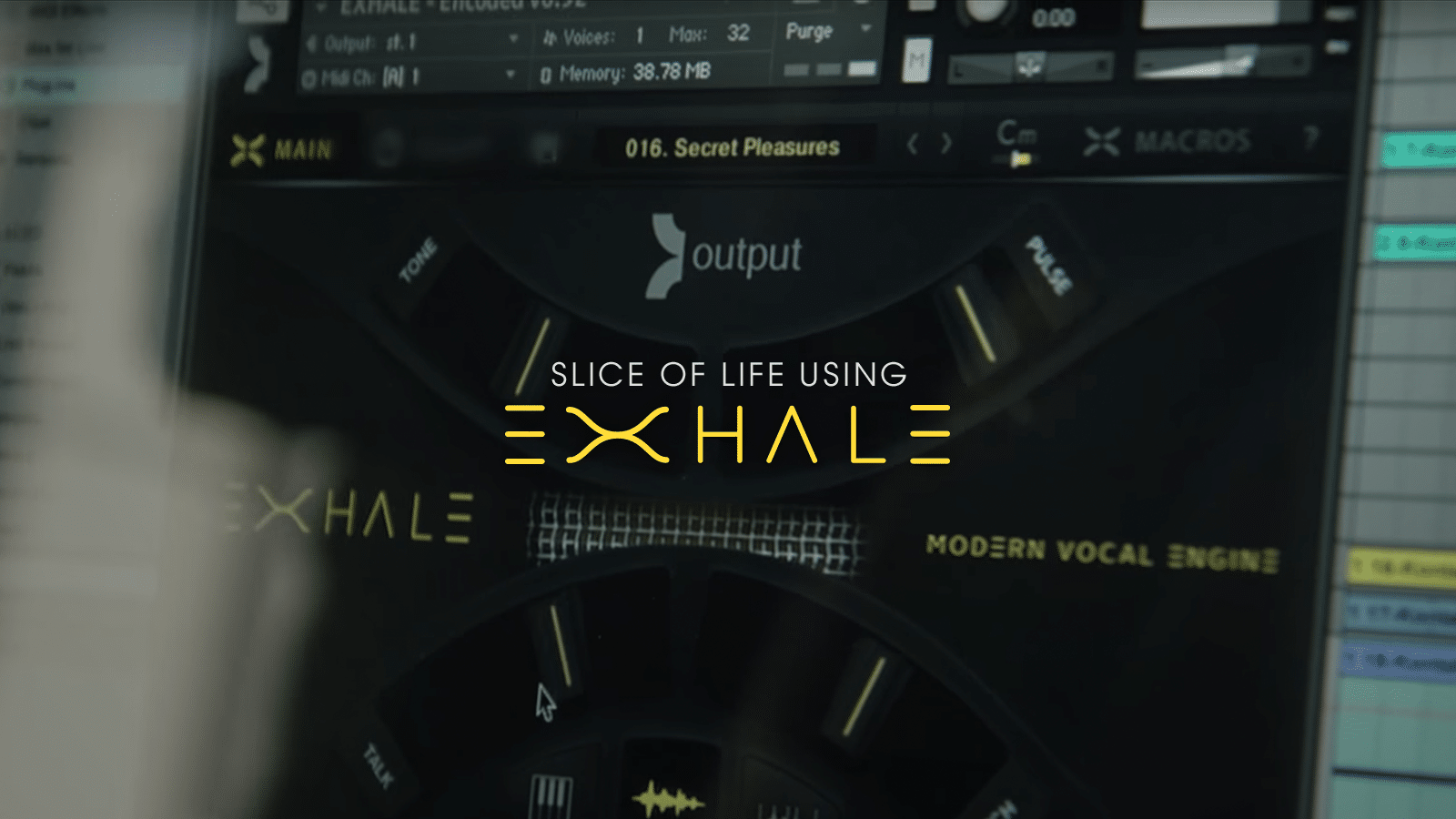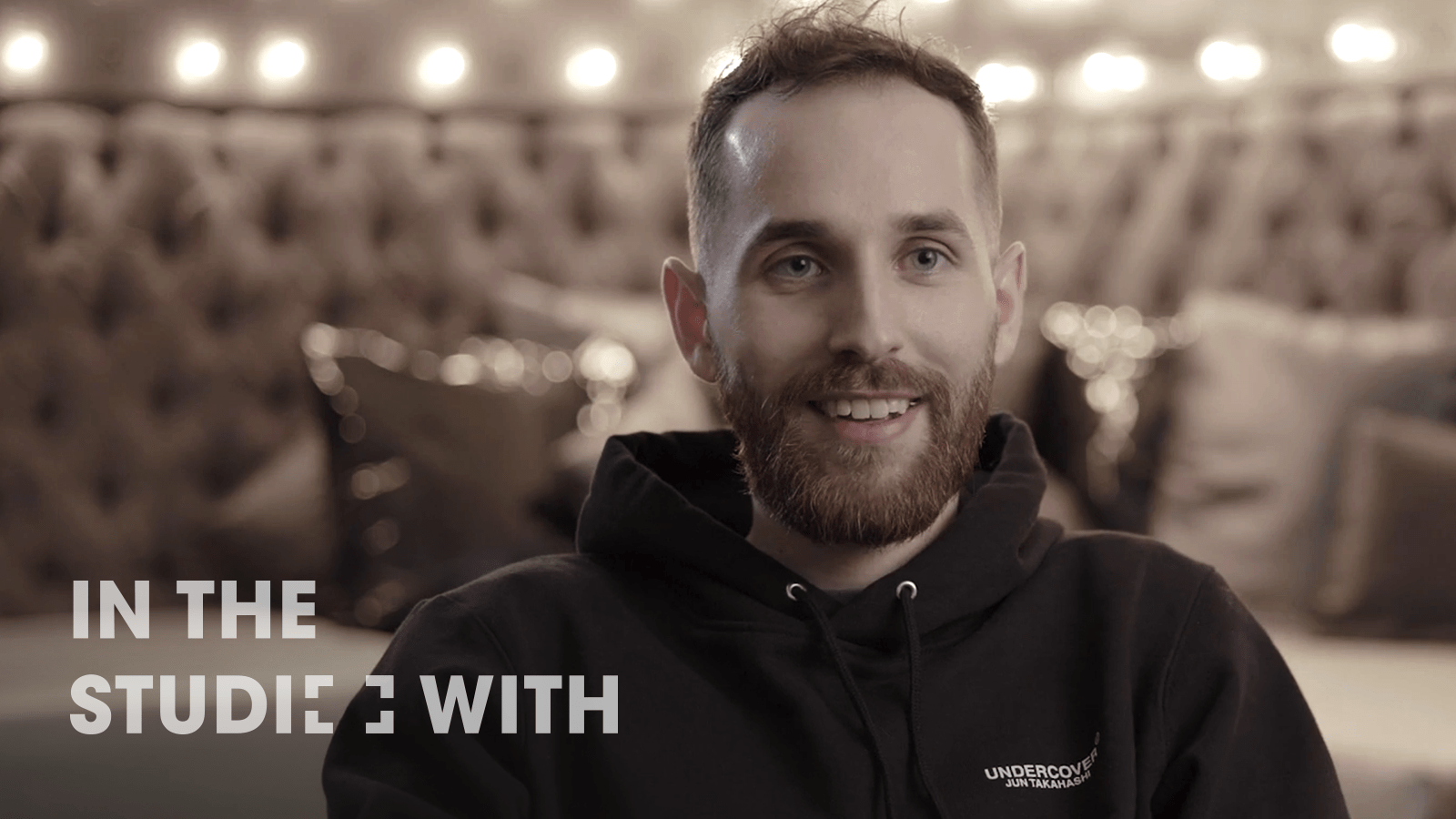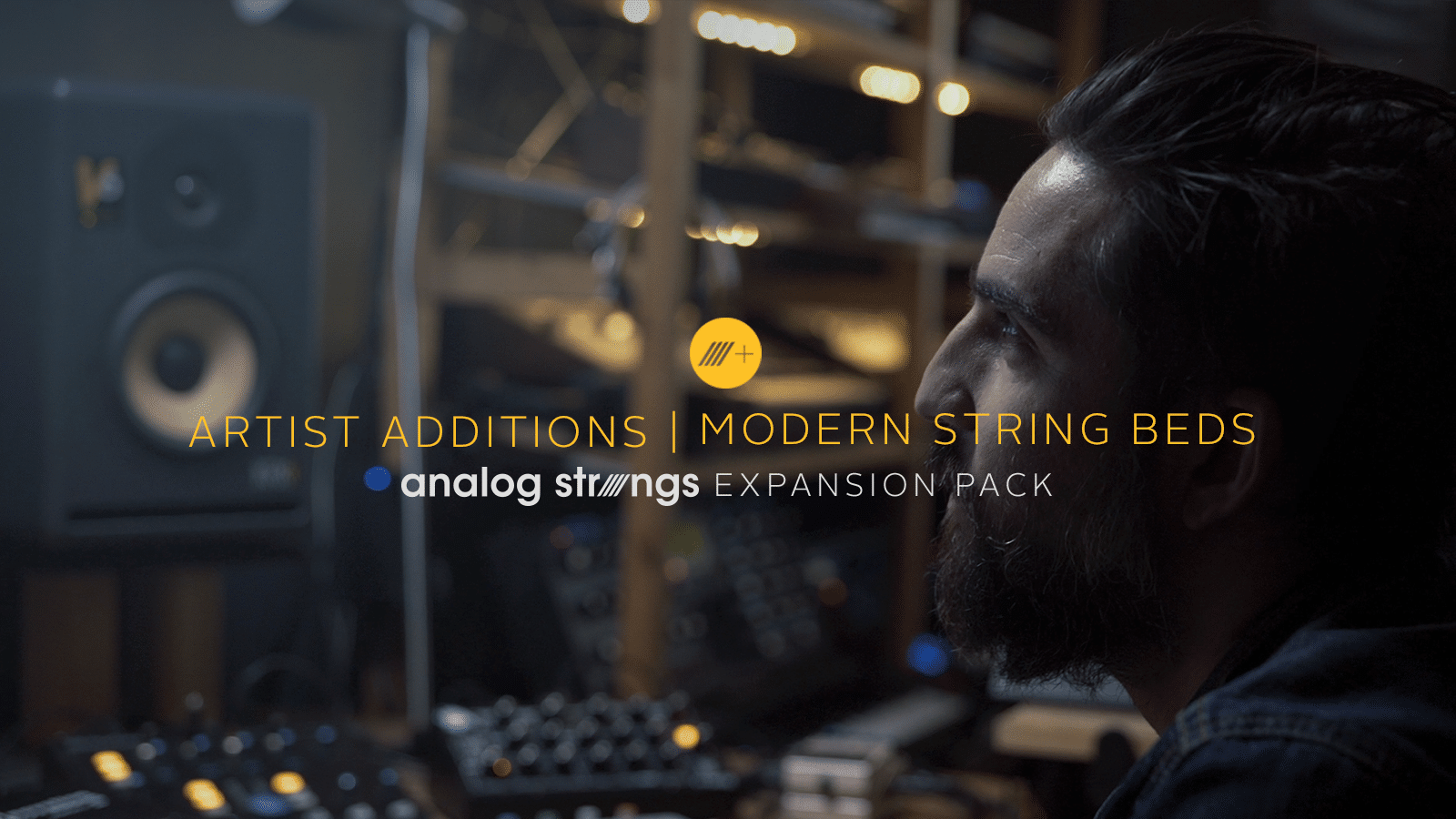Tony Hoffer is the record producer, mixer, and multi-instrumentalist best known for his work with Beck, Air, Phoenix, M83, Fitz and the Tantrums, Chromeo, and Depeche Mode.
He has a simple goal: “All we’re trying to do is keep people in the song for a couple bars.”
Hoffer, who has also worked on platinum-selling albums by acts like The Kooks, The Thrills, and Supergrass, says that once the audience has hung in there for those couple of bars, “we’ve got to have another idea to keep them in for two, three or four more bars. And you’re just constantly doing that.”
As he gives us a tour of his studio, Hoffer explains that he’ll spend six and a half hours talking about the reverb on a certain hi-hat hit. “But ultimately it’s pointing to how can we keep someone interested in staying in the song and listening to it longer,” he says. “Hopefully [we] get them to the end of the song and they listen to it again, or listen to something else by the artist or buy a ticket or a shirt.”
A mic pro tip
“I love very dry drums,” he explains from his tracking room. “As dry as they possibly can be — ‘70s dead drums. I love that.”
Then he points out an $800 Shure VP88 stereo microphone.
“You put close mics on the drums and okay, good, snare sounds great,” he says with a matter-of-fact tone. “But I always found that when I would stand in front of the drums…everything sounded great. I’d go back in and things sounded too clear. So I always put a stereo mic here, or mono mic, or both, and capture the drums that way. Often this will be a big part of the drum sound.”
Drums or drum machines
“This is a Sequential Circuits Drumtraks drum machine,” Hoffer says while presenting the vintage beatmaker from 1984. It’s a model Orbital and Prince once utilized. “I love this thing. I’ve used it on a lot of records. It’s all over the Phoenix album I did called Alphabetical. It’s pretty much the main drum sound. The sounds are very authentic, but very drum machine-like sounding, which is kinda cool.”
The beat goes on as Hoffer leads us to the E-mu SP-1200 that major artists like Daft Punk, Phil Collins, and The Prodigy have been known to rock.
“It’s a sampler that’s also a drum machine. This was a big part of the early days of hip-hop. This and the MPC60,” he explains. “I started off doing a lot of sampling years ago. This was one of the things that I would use to create songs or beats or elements to put into tracks to add atmosphere. It uses these little floppy disks, which you don’t see much,” he says holding up an old disc. And he’s right, it’s a rare sight.
Work fast, embrace mistakes
“I like to work fast, really fast, and by doing so, I’m able to make mistakes quicker and then get onto solving them quicker,” says Hoffer.
“I can try a lot more things in shorter periods of time. With mixing, for example, I’ll mix the song maybe 85 percent of the way there. And then I stop. I’ll go onto something else, another song. Then I’ll come in the next day, I’ll listen with fresh ears, have something to write on, or a laptop to type into quickly on that first fresh listen. That’s the best listen you’ll get,” he says.
Using Exhale and Signal with instruments
“Guitar is my main instrument. I’m much stronger at guitar than the keyboard. I have this guitar made by You Rock,” he says of the headless MIDI guitar. “It is the most incredible invention ever made because I can plug this into my computer and open up EXHALE, get a cool patch, and make these amazing chords on the guitar that I wouldn’t be able to do on a keyboard.
“I’m going to run this through SIGNAL,” he continues. “The thing that I would tell someone that’s up and coming is to be a really good listener. Be able to listen to people and hear what their needs and wants are. So, if someone has an idea for an album or an idea for a certain part of a song, an element they want to put in, try to duplicate in your mind what they’re saying and see why they’re saying it and you’ll get on quite well. People will want to hire you again if you can communicate with them and understand them and they feel like they’re being heard.”
Two synths in his studio of note
“This is my ARP 2600,” says Hoffer (as if the iconic synth created by Alan Robert Pearlman needs an introduction). “It’s semi-modular in that some things are already pre-patched internally. It’s pre-wired so you literally can turn it on and start making sounds. You don’t need to use any cables. It’s super fat and has an amazing low end. It’s also really cool for processing sounds.”
Then he slides over to a Roland synth. “This is a Juno-60, my favorite polyphonic synth. I love it a lot,” he beams. “Super warm, amazing filter. Traditionally I’ll buy something on eBay, hold it for a few years, use it and then ditch it and buy something else. So I’m constantly cycling through things.”
Hoffer says that if he has used certain equipment enough on productions, he loses interest in bringing those sounds to new projects. “I get rid of them, get new things in, and try things out,” he explains. “Every project that I work on, I’m learning new things. Whatever I did on the previous project, whatever tricks I did, and whatever revelations I had, none of that will work on the next project. That’s how it is. And I’m okay with that. I suppose if I weren’t always learning new things, then it’d be a boring game for me.”
The vinyl records are for making samples
“When I started out, I was doing a lot of sampling and I think I had five samplers at the time actually, which was complete madness, but you needed them,” Hoffer admits.
“When I was working with Beck on Midnight Vultures, I would literally bring one or two crates of albums over to the studio at his house,” he says of the record that would result in a Grammy nomination for Album of the Year. “We would go through them, find little bits and start putting things together. That’s pretty much how Midnight Vultures came about.”
Hoffer’s advice to producers and musicians is similar to what a financial planner might suggest: diversify your portfolio.
“Just relying on one thing, like just plugins or just outboard gear…I don’t think is smart. I think you need to use it all. Having diversity in how you work is probably good.”
For more insights on songwriting, check out this interview with rising alt-rock star KennyHoopla.



